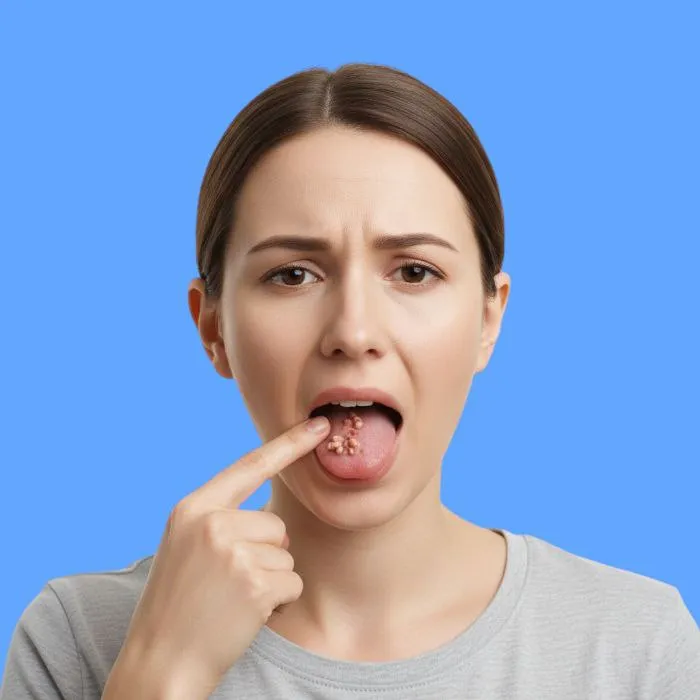What is HPV?
HPV is a viral disease caused by infection with the human papillomavirus (HPV).
It affects the skin or mucous membranes and causes small, wart-like growths to grow in various areas of the body, such as the hands, feet, or genitals.
It is one of the most common viral infections and is often transmitted through direct contact with infected skin or unprotected sexual intercourse.
What are the causes of HPV?
There are several common causes of the disease, including:
- Direct infection with HPV.
- Skin-to-skin contact with an infected person.
- Using personal items from someone who carries the virus.
- Weakened immune system.
- Unprotected sexual intercourse.
What are the common symptoms of HPV?
There are several common symptoms a patient may experience, including:
- The appearance of small warts on the skin or genitals.
- Itching or irritation in the affected area.
- Mild bleeding when the warts rub against clothing.
- A gradual increase in the size and number of warts.
When should you see a doctor?
It is recommended to see a doctor in the following cases:
- Noticing the appearance of new or recurring warts.
- Experiencing pain or bleeding from the affected area.
- A change in the shape or color of the warts.
- If the warts do not respond to home treatment.
- If there is a complaint about the genitals.
What are the methods for diagnosing human papillomavirus (HPV)?
The disease is diagnosed using several methods, including:
- Clinical examination of the skin or the affected area.
- Taking a sample of the warts for laboratory analysis.
- A Pap smear test for women.
- DNA analysis to determine the type of HPV virus.
- Regular examination to detect any abnormal changes.
What are the methods for treating human papillomavirus (HPV)?

There are several methods for treating the disease, including:
- Topical medications to reduce the size of the warts.
- Electrocautery or laser to remove them.
- Cryotherapy using liquid nitrogen.
- Immunostimulating medications.
- Medical follow-up to prevent recurrence.
Can HPV be cured?
- Most cases can be cured on their own within months.
- Recovery depends on the strength of the immune system.
- Some types remain dormant without symptoms.
- Early treatment prevents complications.
- Vaccination protects against dangerous types of the virus.
What are the tips for preventing HPV?
There are a number of tips for preventing the disease, including:
- Get the HPV vaccine.
- Avoid unprotected sexual intercourse.
- Use only personal items.
- Boost immunity with a healthy diet and adequate sleep.
- Conduct periodic checkups, especially for women.
What are the potential complications of HPV?
Some complications may occur if treatment is left untreated, such as:
- Transmission of the infection to other partners.
- Increased size and number of warts.
- Chronic infections of the skin or genitals.
- Risk of cervical or penile cancer.
- Psychological disturbances due to the appearance of the skin.
Frequently Asked Questions About HPV
Can HPV go away without treatment?
Yes, in some cases it disappears spontaneously with strengthening immunity.
Is HPV a serious disease?
Not always, but some types can cause cancerous tumors.
Can it be contracted more than once?
Yes, because immunity to the virus is not permanent.
Does the vaccine protect against all types?
No, but it protects against the most common and dangerous types.
Can the infection be transmitted only through contact?
Yes, through direct contact with infected skin.
Article Summary
HPV is a common viral disease that can be easily prevented with vaccination and safe health behaviors.
Early detection and prompt treatment reduce the risk of complications.
Practicing personal hygiene and boosting immunity are the first line of defense against infection and long-term prevention.